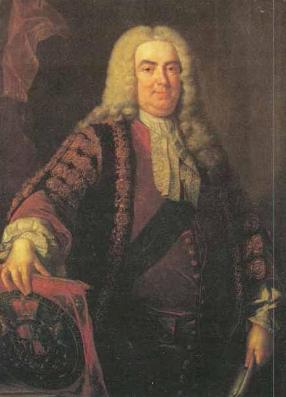如题:http://poj.org/problem?id=3126
Description
 The ministers of the cabinet were quite upset by the message from the Chief of Security stating that they would all have to change the four-digit room numbers on their offices.
The ministers of the cabinet were quite upset by the message from the Chief of Security stating that they would all have to change the four-digit room numbers on their offices.
— It is a matter of security to change such things every now and then, to keep the enemy in the dark.
— But look, I have chosen my number 1033 for good reasons. I am the Prime minister, you know!
— I know, so therefore your new number 8179 is also a prime. You will just have to paste four new digits over the four old ones on your office door.
— No, it’s not that simple. Suppose that I change the first digit to an 8, then the number will read 8033 which is not a prime!
— I see, being the prime minister you cannot stand having a non-prime number on your door even for a few seconds.
— Correct! So I must invent a scheme for going from 1033 to 8179 by a path of prime numbers where only one digit is changed from one prime to the next prime.
Now, the minister of finance, who had been eavesdropping, intervened.
— No unnecessary expenditure, please! I happen to know that the price of a digit is one pound.
— Hmm, in that case I need a computer program to minimize the cost. You don't know some very cheap software gurus, do you?
— In fact, I do. You see, there is this programming contest going on... Help the prime minister to find the cheapest prime path between any two given four-digit primes! The first digit must be nonzero, of course. Here is a solution in the case above.
1033The cost of this solution is 6 pounds. Note that the digit 1 which got pasted over in step 2 can not be reused in the last step – a new 1 must be purchased.
1733
3733
3739
3779
8779
8179
Input
Output
Sample Input
3 1033 8179 1373 8017 1033 1033
Sample Output
6 7 0
题目给出2个4位素数,要求求出经过几次变换从左成右边的素数,要求变换次数最少,变换规则:从左边素数开始,每次变换一位,变换后还得是素数,直至变成右边。
求最小步数,简单BFS就可,关键是搜索状态使用素数筛优化一下,O(nloglogn)的复杂度求出4位所有素数。改变状态时只需if(is_prime[x])即可。
32ms AC
#include<iostream>
#include<cstdio>
#include<cstring>
#include<queue>
using namespace std;
struct node
{
int x,step;
};
int is_prime[10000];
void seive()
{
int i,j;
int p=0;
for(i=0;i<=9999;i++)
is_prime[i]=1;
is_prime[0]=is_prime[1]=0;
for(i=2;i<=9999;i++)
if(is_prime[i])
{
for(j=2*i;j<=9999;j+=i)
is_prime[j]=0;
}
}
int BFS(int a,int b)
{
int vis[10000]={0};
queue<node>q;
node t;
t.x=a;
t.step=0;
q.push(t);
vis[t.x]=1;
while(!q.empty())
{
node p=q.front();
if(p.x==b)
return p.step;
q.pop();
int i;
int d=p.x%10;
int c=(p.x/10)%10;
int b=(p.x/100)%10;
int a=p.x/1000;
for(i=0;i<=9;i++)
{
if(is_prime[a*1000+i*100+c*10+d]&&!vis[a*1000+i*100+c*10+d])
{
t.x=a*1000+i*100+c*10+d;
t.step=p.step+1;
vis[a*1000+i*100+c*10+d]=1;
q.push(t);
}
if(is_prime[a*1000+b*100+i*10+d]&&!vis[a*1000+b*100+i*10+d])
{
t.x=a*1000+b*100+i*10+d;
t.step=p.step+1;
vis[a*1000+b*100+i*10+d]=1;
q.push(t);
}
if(is_prime[a*1000+b*100+c*10+i]&&!vis[a*1000+b*100+c*10+i])
{
t.x=a*1000+b*100+c*10+i;
t.step=p.step+1;
vis[a*1000+b*100+c*10+i]=1;
q.push(t);
}
if(i!=0)
{
if(is_prime[i*1000+b*100+c*10+d]&&!vis[i*1000+b*100+c*10+d])
{
t.x=i*1000+b*100+c*10+d;
t.step=p.step+1;
vis[i*1000+b*100+c*10+d]=1;
q.push(t);
}
}
}
}
return -1;
}
int main()
{
int a,b;
int T;
seive();
scanf("%d",&T);
while(T--)
{
cin>>a>>b;
int res=BFS(a,b);
if(res==-1)
printf("Impossible\n");
else
printf("%d\n",res);
}
return 0;
}


























 310
310

 被折叠的 条评论
为什么被折叠?
被折叠的 条评论
为什么被折叠?








